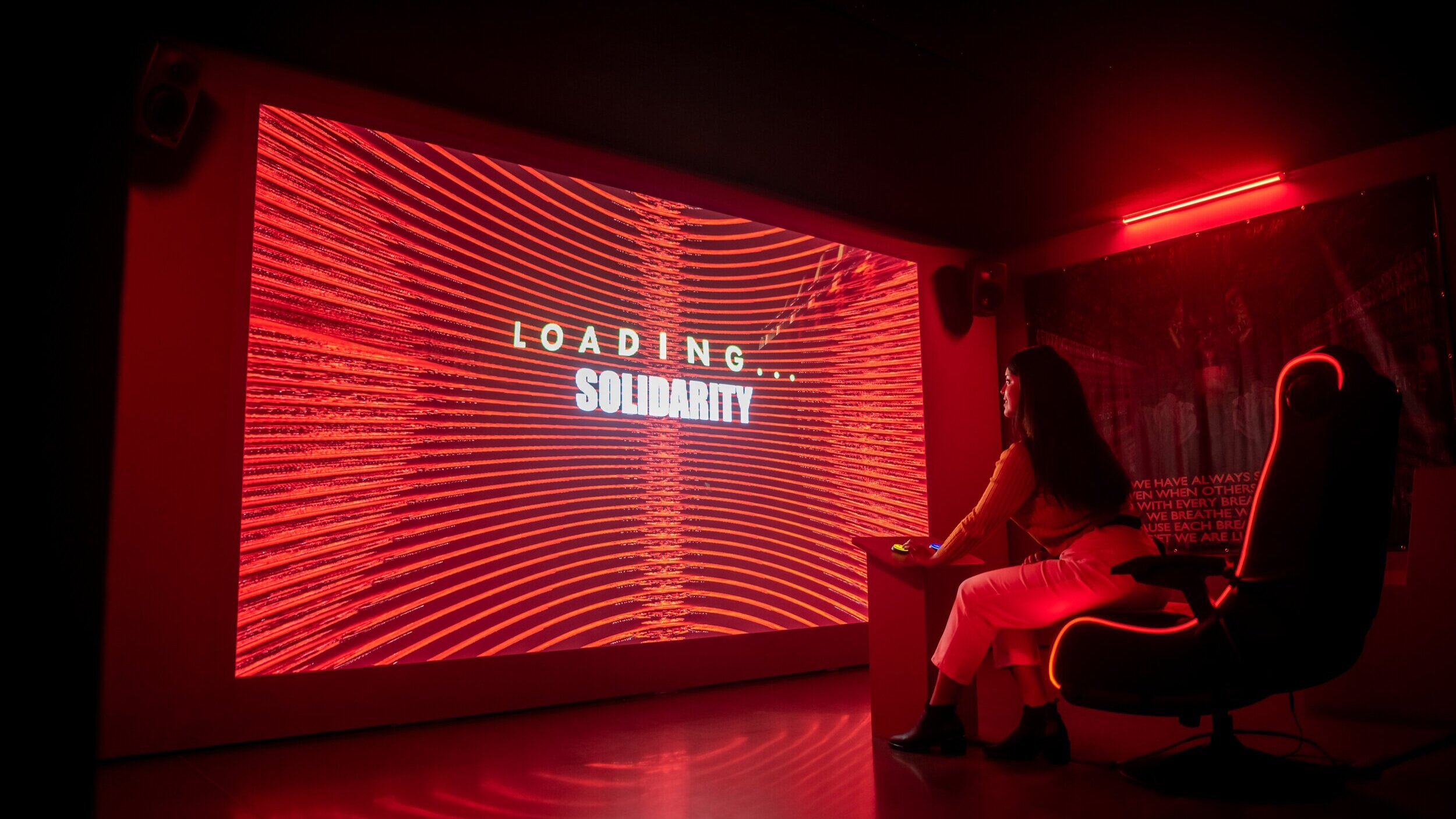The artist using video gaming to tackle the erasure of Black Trans stories
Danielle Brathwaite-Shirley is an artist who makes work that seeks to make a record of the Black Trans experience.
Danielle’s new work, WE ARE HERE BECAUSE OF THOSE THAT ARE NOT, is an interactive video game exploring living as a Black Trans person and decisions around medicalising the body. While the GENDERS exhibition is closed, you can play the game online.
Danielle shares how and why they used gaming to create an archive that centres Black Trans experiences without recreating the trauma that many people experience.
My practice orbits around using technology to create works that I see as archives. It began when I was digging for Black Trans people in history.
I think archives have often erased particular histories and experiences. They present themselves as objective while presenting a history through a colonial, imperial lens. All the recorded information of them was second hand and often from the view of someone that saw them as less human. The violence in the archive deeply disturbed me as it was clear that we had not been given the opportunity to archive ourselves. So, as a counter to the archives that exist today I aim to create work that centres those like me, archiving our histories and experiences in the hope that those of us in the future have archives to look back on that reflect them.
I make work to archive Black Trans people. Our experiences have often been systematically erased and ignored.
Historically our appearance on TV, gaming and news has often been negative, boiling our existence down to either a dehumanising joke or simply focusing on the trauma of being Trans. I am so tired of the representation of our lives being so negative. We are multifaceted individuals who deserve to see ourselves reflected.
I see fantasy as a helpful tool to create new narratives and histories.
Black Trans people did exist in the past but we have no record of them. Using fantasy allows me to think about how our ancestors may have existed. What role did they have in their society? Were they accepted, honoured or turned away? Did they have their own communities? Were they seen as normal? Through fantasy I imagine the lost experiences and knowledge of those ancestors and imagine what they would be able to tell us if we brought them back.
“I am so tired of the representation of our lives being so negative. We are multifaceted individuals who deserve to see ourselves reflected.”
For this project I worked alongside a group of Black Trans people in my network as well as METRO TRANSCEND, a social group for Trans and non-binary young people and those who are questioning their gender.
We worked alongside each other to design characters and come up with concepts of what and how we could record ourselves. Using collages we made as well as photos that we took together, many of the environments within the Archive were constructed during a workshop.
The environments in the Archive are made bottom up with Black Trans imagery.
I constructed the 3D landscapes from imagery of, for example our hair and skin. The images used to texture objects were also from Black and Trans people. For me this is a form of archiving – taking images from our lives and using them together to construct spaces that can hold our experiences.
As this was my first project working with Trans young people, it was important to really listen to them and centre them.
Most of us had never played a game with Black Trans people front and centre. So, it was hard because we had to invent how we implemented ourselves into the experience. We made the Archive a game because I wanted it to require work to journey through the Archive. The choices you make while in the Archive will affect what you can see and what is available. Another topic of conversation was who would play the game and how we could protect our experiences to some degree. Because of this we made it so that your identity would affect the access you get in the Archive. Cis people and Black Trans people will have a totally different experience while playing.
A huge motto in all my work is that I do not aim to recreate trauma.
That means that although trauma is acknowledged and recorded through how we live alongside it, moments of trauma are never recreated. This was a reaction to the fact that often trauma is the only thing that is centred in our experience. There is a kind of desire to see the trauma of Black Trans people. A kind of “trans tourism”. Seeing our trauma over and over I feel has such a damaging effect on us, as that’s all people see. So when approaching my work, especially WE ARE HERE BECAUSE OF THOSE THAT ARE NOT, I focused on how I wanted people like myself to feel when they experienced it; seeing what we have been through but trying to uplift and empower our experiences.
Next, I am working on creating a Trans horror experience for mobile.
It will centre around a place called the HORMONE MAZE while you are being pursued by a voice training app. I am also working on a variety of Trans ATMs which are archives similar to ATMs that charge. In order to access deeper levels of the archive people would have to pay using their card. This has come out of people asking how they can directly support Trans people and my wanting to create a system that allows the distribution of wealth to those who need it.





